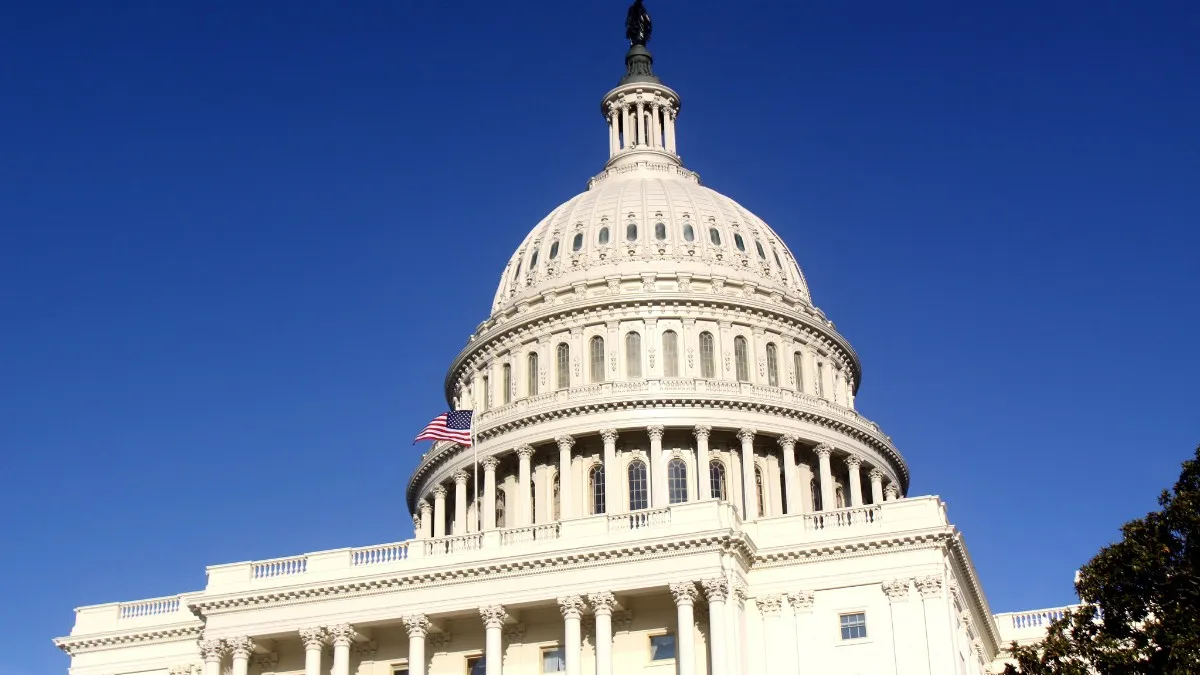UPDATE: Dec. 12, 2020: The Senate voted 84-13 on Friday to approve the National Defense Authorization Act. The bill, passed by a veto-proof majority in both chambers of Congress, awaits President Donald Trump's signature. Trump continues to say he will veto the bill.
Dive Brief:
- All U.S. corporations would have to register the identity of their beneficial owners in a Financial Crimes Enforcement Network (FinCEN) database under an anti-money laundering (AML) measure Congress is set to approve this week.
- The Anti-Money Laundering Act of 2020 would lower banks' compliance costs and alleviate the burden of collecting beneficial ownership information when corporations apply for bank accounts and supplying that data to law enforcement in the event of an investigation.
- The legislation is couched in the annual National Defense Authorization Act (NDAA), which the House passed Tuesday on a 335-78 vote. The Senate is expected to pass the defense bill this week.
Dive Insight:
The measure is meant to keep criminals from using shell companies to hide their ill-gotten gains. But it also aims to streamline the "suspicious activity report" system — under which a pattern or type of transaction will trigger alerts that banks must flag to the Treasury Department.
The bill would mandate that the Treasury set priorities for anti-money laundering policy among law enforcement, bank supervisors and banks, and establish communication channels among all three.
"In the post-9/11 world, and especially since the financial crisis, what you have seen is regulators making the U.S. banking system the world's de facto [anti-money laundering] regulatory body," Ed Mills, a policy analyst at Raymond James, told the Financial Times. "When someone comes to do business, the bank has to become a sleuth.
"This bill shifts the burden to the customer to self-disclose," he said.
Banking trade groups and reform advocates both applauded the measure. Greg Baer, president and CEO of the Bank Policy Institute, said in a statement Wednesday the bill would "bring the nation closer to locking global criminals out of the U.S. banking system ... and modernizing the process for detecting illicit behavior."
Dennis Kelleher, president of the nonprofit Better Markets, told the Financial Times "the bottom line is that finally requiring transparency of actual owners hiding behind beneficial ownership disguises is a win-win for everyone," except criminals.
President Donald Trump threatened Tuesday to veto the NDAA because it would not repeal a portion of the Communications Decency Act that protects social networks from prosecution for libel. The 335-78 margin by which the House passed the bill surpasses the threshold to override a veto. Some lawmakers are hoping that if senators pass the measure by a similar margin, it would prompt Trump to reconsider the veto.














